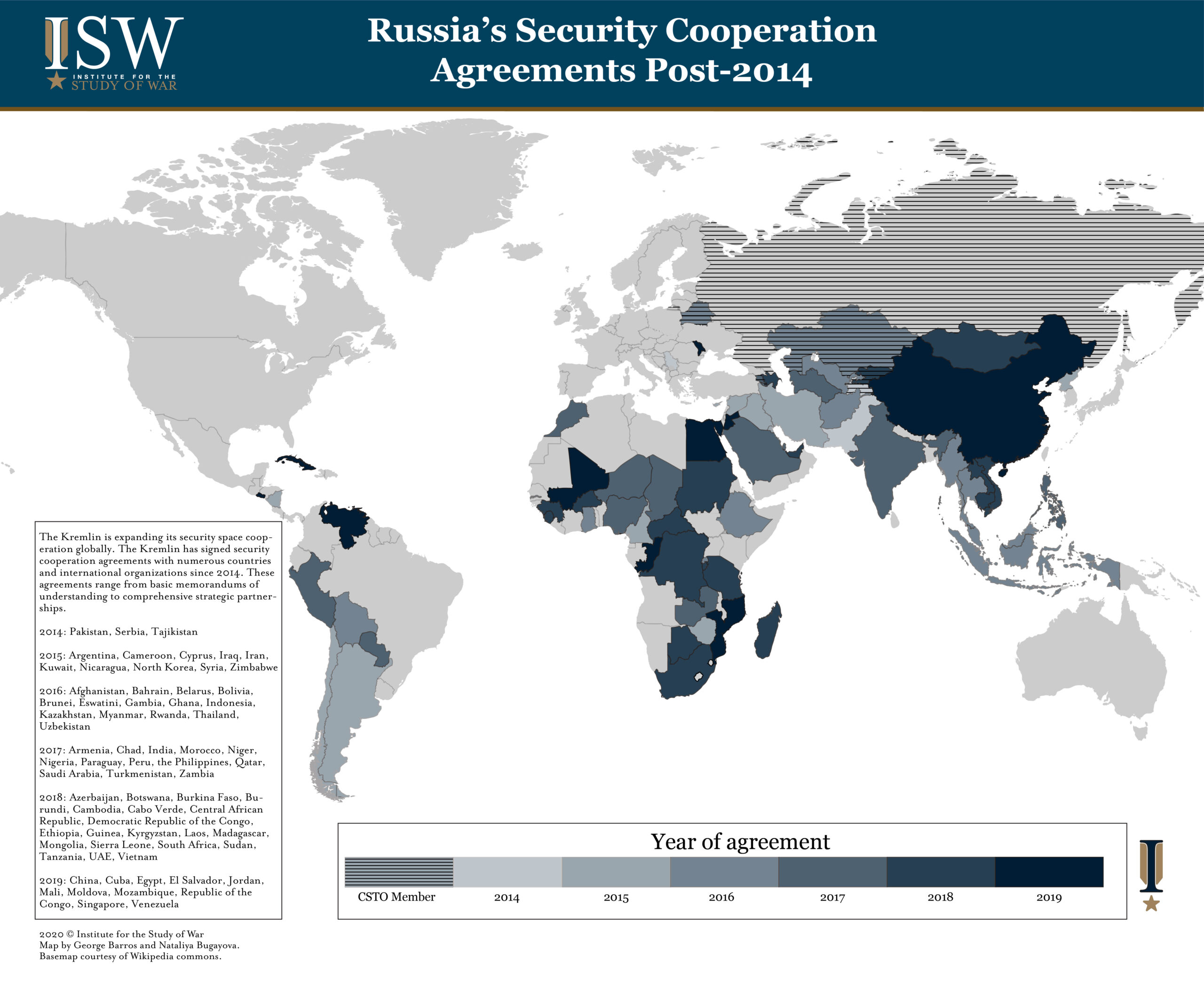Authors: Nataliya Bugayova, Mason Clark, and George Barros with Aleksei Zimnitca, Aidan Therrien, and Kayla Grose
This assessment and map are part of ISW’s upcoming report on Putin’s geopolitical thinking.
Key Takeaway: The COVID-19 crisis has impeded some of the Kremlin’s efforts but has not changed its objectives, one of which is expanding Russia’s power projection capabilities internationally. Russia’s military footprint and basing opportunities are expanding but remain limited. Putin is thus using coalitions and partnerships to amplify Russia’s security space – as ISW will analyze in its upcoming major report on Putin’s geopolitical thinking.
The Kremlin has signed over 90 agreements with 73 different countries and international organizations since 2014 – ranging from basic memorandums of understanding (MoU) to comprehensive strategic partnerships. The Kremlin classifies many of these agreements as either “military cooperation,” focused on joint training and educational exchanges, or “military-technical cooperation,” focused on expanding arms sales and equipment maintenance.
Most of the Kremlin’s agreements have limited substance and serve as non-binding calls to increase cooperation. Even basic agreements provide the Kremlin opportunities to participate in security conversations, cultivate global human networks, and develop potential avenues for future arms sales or the deployment of Russian personnel. The Kremlin has additionally signed numerous issue-specific agreements with individual countries. These security agreements focus on cooperation in counterterrorism, counter-narcotics, and anti-piracy operations, primarily as a stepping stone to an increased Russian presence and a way to engage other countries in the Kremlin’s geopolitical agenda. These agreements also include joint intellectual property (IP) protection, port visitation rights that increase the Russian Navy’s power projection capabilities, military deconfliction agreements, and cooperation between internal security services and civilian national security agencies. Finally, the Kremlin has signed several high-level strategic partnerships, primarily with states in the former Soviet Union.

